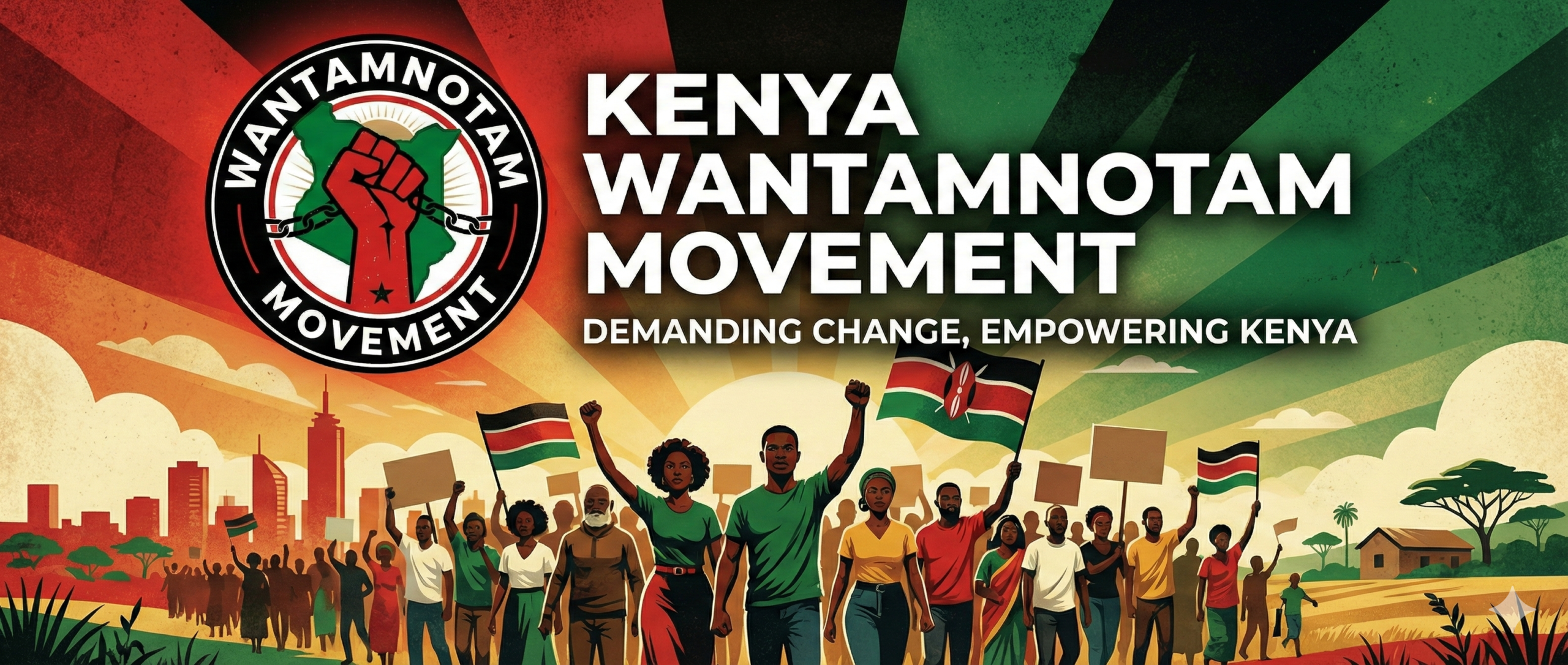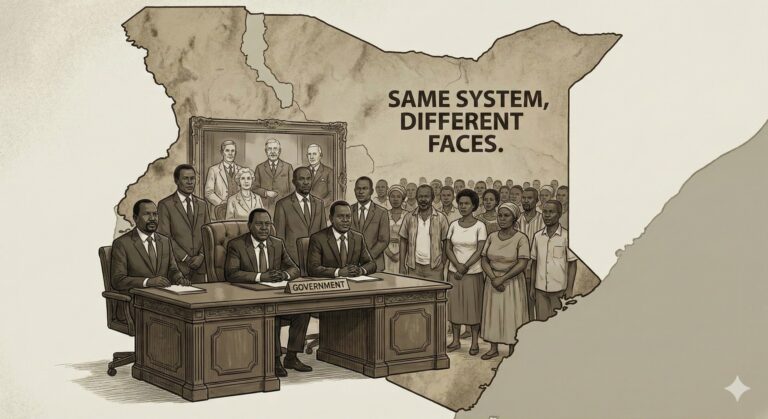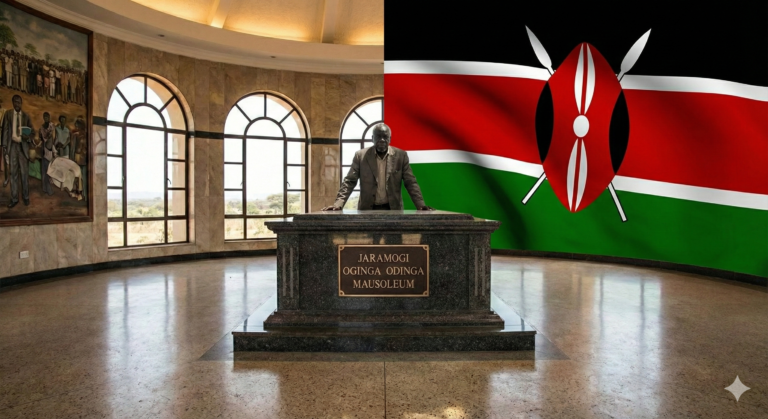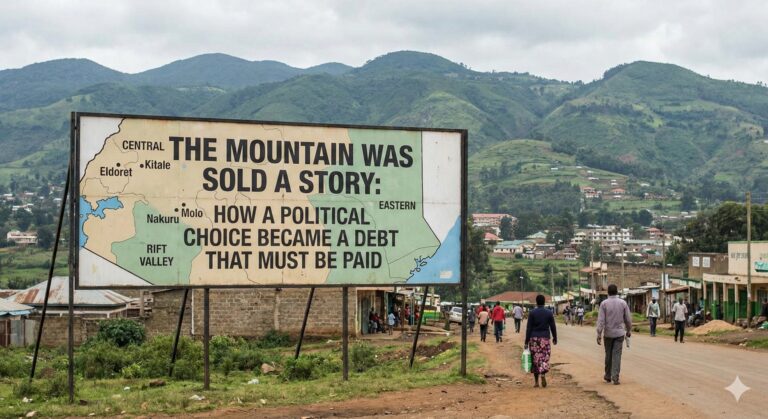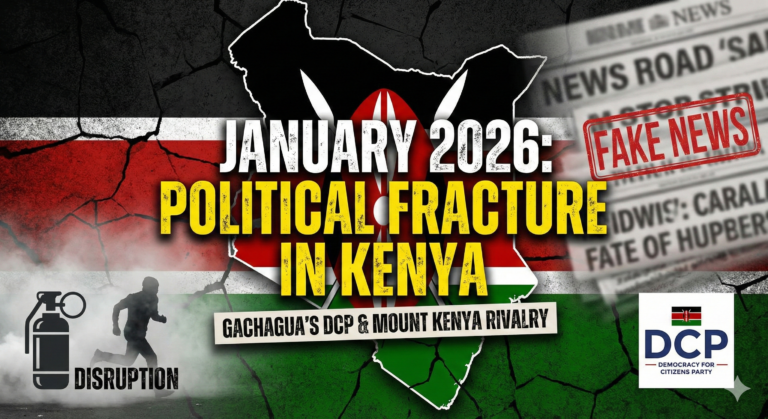You watched it unfold on your streets. Children huddled behind walls. Sweat and tears on faces you know. Junior voices carpeted in fear. And the man you gave your trust to? He shrugged. June 25th, 2025 shattered something. This wasn’t a protest. It was a mirror. A mirror showing betrayal. Everything you believed crumbled before your eyes.
You remember Ruto’s speeches. He spoke about hope, progress, dignity. He sounded like one of you. No filters. No fancy words. Just a guy who’d struggled. Who’d driven boda‑bodas. Who knew what hunger felt like. You listened. You believed. You voted. Many insisted he was different. Then came that storm. Teargas. Batons. Youth dragged across pavement. Live rounds fired at kids with dreams in their eyes. The government called them threats. You see them as your future. Both, being crushed with official sanction.
This moment exposed him. Not just as cold. As calculated. You asked: where’s your leadership? Where’s your empathy? Your moral responsibility? Hands that once shook with promise? When those hands now raise tear‑gas cans and shields, something inside you recoils.
You tried to give him grace. You whispered, “Maybe it was fear.” Innocent until proven guilty. You heard officials spin stories. They say it’ll pass. They say these things happen. They say people misbehaved, started fights. But those kids? They were peaceful. They asked for change. They chanted hope. And you–you watched them met with force. You heard them described as criminals. You felt your stomach twist. You realized: a government that uses violence to silence dreams doesn’t deserve your trust.
This isn’t about suspicion. It’s about evidence. Track this government. Count the missed promises. Wages stuck. Health centers ghosted. Schools open in name only. Programs launched with fanfare end in silence. Drains drilled. Flags flown. Ministers change. Reality stays broken.
When Ruto smiles for cameras, there’s a vacuum behind his eyes. No ownership. Just spin. He’s mastered the art of excuses. The power of blame. The reassurance of “not my fault.” The reliance on influences. The staging of campaigns. All flavor, no substance. Every week there’s a new statement. A new explanation. A new wedge between him and you. Each one drifts farther from real life.
What’s left? No healing, no rebuilding. No real leadership. Not after June. Because leadership means showing up. When things go sideways. When anger spirals. When the crowd grows restless. You don’t send rifles. You don’t hide. You don’t wait for it to pass. You step in. You open talks. You sit with students. You face them. You apologize. You promise to fix. You don’t tear gas them.
So the question now: who’s really in charge? Is it the president who hides from tough questions? The PR consultants who spin the narrative? The millionaires who bankroll campaigns from behind closed doors? The internet influencers sponsored to praise the man who sends police against kids? Or Ruto alone, perched above it all in that motorcade, listening to advisers who tell him everything’s fine?
Ask the hustler next to you. Ask the boda guy. Ask the mama mboga. Did they feel heard? Did their burdens lighten? Did their eyes light when he spoke? They’ll say no. They’ll shake their heads. They’ll point toward the empty clinic. The broken track. The expired drugs. They’ll say they watched their hopes evaporate in tear gas. They felt betrayed.
Gen Z felt it first. Then millennials joined. The streets buzzed with silent rage. With resigned refusal. They didn’t clap anymore. They marched. They asked their parents to stop modestly pretending. They shouted. They watched police beat trust into the pavement. They collected hospital reports. They posted them online. They declared they aren’t waiting. They aren’t hopeful. They reclaimed their voices with unified clarity.
Ruto didn’t respond. He responded the way he knows how: by narrowing the narrative. By framing it all as conspiracy. By claiming agitators exist. By talking about foreign interference. The typical lines. The rehearsed story. He offers no real answers. No solutions. No plan. He offers headlines. And he expects you to whisper “Well, at least he tried.” That’s not leadership. That’s spin.
And so you ask yourself: What does this man stand for? What is he building? Paved roads? Brighter hospitals? Clean water? Or better PR? His team can launch a new project—or at least a ribbon‑cutting story—faster than clinics can get bandages. They can promote a ministry plan faster than they can hire teachers. They can hold pressers faster than they can restock a health center.
Meanwhile your stomach grumbles. Your rent goes up. The bus fare hits a new high. Farmers in your neighborhood watch their crops rot without support. Underground water pumps rust. Wheelbarrows creak. Sheds leak. Kids walk barefoot to school. Dust coats their feet. But headlines still herald “Presidential tour” or “Fuel relief plan.” All spun, framed, forgotten.
You stopped showing up. You stopped cheering. You stopped giving grace. That silence drips louder than speech. And it eats at him. It shows. You see him tense when he speaks. When cameras roll, there’s a hollow inside his pitch. You see it crack when questions land. Those signals—micro‑moments—don’t lie. They say: he knows he lost you.
What scares him more than every student knew their rights? That their silence invited him to listen. Your silence invited him to see. The void they left in your trust isn’t a blank page. It’s a chasm. One he can’t fill with fanfare or launch ceremonies. He can’t gas it away. He can’t spin it away. He can’t rally it away. Not anymore.
Look around. Nairobi’s full of speeches. But Makueni’s fixing pumps. Kisii’s markets hum. Murang’a organizes schools. Rural energy flickers. Hidden. Unannounced. Uncelebrated. That’s where change lives. It doesn’t need slogans. It needs grit. It needs leaning in. It needs shared tables with people who sweat. It needs quiet, consistent problem solving. And that’s not Ruto’s style.
What you’re building now? Not a protest. Not a revolution. A reset. A refusal. A collective pointed claim on what leadership actually is. You want someone who stays when things go south. Someone who signs checks, not blame. Someone who listens when kids speak. Someone who answers when journalists ask—not with stock lines, but with figures: how many classrooms. How many vaccines. How many roads fixed. How many clinics supplied. You know such numbers don’t exist now. But you’re betting they will—with effort and honesty, not spin.
You don’t want youth to sit in town halls listening to more speeches. You want youth in clinics seeing real medicine. In schools seeing real teachers. In towns seeing real roads. You want youth so they don’t walk across the country in desperation. You want dignity in daily life. You want Kenya to stop being a broken promise.
This isn’t about one man. It’s a movement. You sense it in your friends. You sense it in your feed. You saw it in the eyes of those young voices on June 25. Not failure. Not collapse. Awakening.
Some will blame you for being negative. For giving up on him. For seeking “another person.” But you’re not buying new packaging. You’re watching. You’re listening. You’re measuring. You won’t shut up or go home. Not now.
Not until leaders start collecting feedback, not just applause. Not until accountability is normal. Not until you’re not waiting for subsidized announcements but seeing actual empowered lives. Not until the next generation sits at tables where solutions happen, not where speeches are delivered.
Until then, titles mean nothing. Convoys mean nothing. Cabinet ministers sitting in plush offices—they mean nothing. Your work, your hustle, your refusal—that’s meaning. That’s where real Kenya flickers. It grew that way before. It’s doing it again. Quietly. Everywhere you look.
He built headlines. You built resistance. That’s where the future sits. That’s where your power lives. Not in empty slogans. Not in hollow launches. Not in tear‑gas.
You moved. It’s his move now. But he’s already too late.
CLICK HERE:Listen To WANTAMNOTAM PODCAST AND TAKE ACTION
